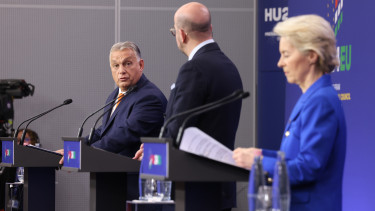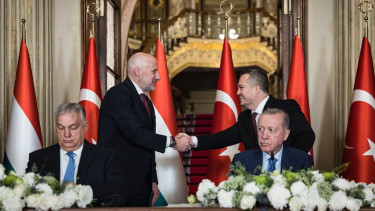Third COVID-19 vaccine on the European horizon

The EMA said on Tuesday an opinion on the CMA could be issued by 29 January during the meeting of EMA’s scientific committee for human medicines (CHMP), "provided that the data submitted on the quality, safety and efficacy of the vaccine are sufficiently robust and complete and that any additional information required to complete the assessment is promptly submitted."
Such a short timeframe for evaluation is only possible because EMA has already reviewed some data on the vaccine during a rolling review.
If EMA concludes that the benefits of the vaccine outweigh its risks in protecting against COVID‑19, it will recommend granting a CMA. The European Commission will then fast-track its decision-making process with a view to granting a CMA valid in all EU and EEA Member States within days.
This could be the third COVID-19 vaccine available in the 27 member states of the European Union after vaccines developed by Pfizer/BioNTech and Moderna.
Pressure on the EU is mounting to speed up the marketing authorisation of new vaccines, as the bloc is grappling to slow down and eventually prevent the spread of coronavirus that has already claimed over 620,000 lives on the continent.
European Commission President Ursula von der Leyen welcomed AstraZeneca's application in a tweet.
Good news! has applied to to have its vaccine authorised in the EU. will assess the vaccine’s safety & efficacy.Once the vaccine receives a positive scientific opinion, we will work full speed to authorise its use in Europe. @AstraZeneca
— Ursula (von) January 12, 2021
COVID-19 Vaccine AstraZeneca has a lower production cost than its rival vaccines and it poses fewer logistical challenges as it requires storage only in normal refrigerators as opposed to around -70C required to store the vaccine of Pfizer/BioNTech.
How is the vaccine expected to work?
COVID-19 Vaccine AstraZeneca is expected to work by preparing the body to defend itself against infection with the coronavirus SARS-CoV-2. This virus uses proteins on its outer surface, called spike proteins, to enter the body’s cells and cause disease.
COVID-19 Vaccine AstraZeneca is made up of another virus (of the adenovirus family) that has been modified to contain the gene for making the SARS-CoV-2 spike protein. The adenovirus itself cannot reproduce and does not cause disease. Once it has been given, the vaccine delivers the SARS-CoV-2 gene into cells in the body. The cells will use the gene to produce the spike protein. The person’s immune system will treat this spike protein as foreign and produce natural defences − antibodies and T cells − against this protein. If, later on, the vaccinated person comes into contact with SARS-CoV-2, the immune system will recognise the virus and be prepared to attack it: antibodies and T cells can work together to kill the virus, prevent its entry into the body’s cells and destroy infected cells, thus helping to protect against COVID-19.
Efficacy
The trials of the Oxford-AstraZeneca vaccine did include different spacing between doses, finding that a longer gap (two to three months) led to a greater immune response, but the overall participant numbers were small. In the UK study 59% (1407 of 2377) of the participants who had two standard doses received the second dose between nine and 12 weeks after the first. In the Brazil study only 18.6% (384 of 2063) received a second dose between nine and 12 weeks after the first. The combined trial results, published in the Lancet, found that vaccine efficacy 14 days after a second dose was higher in the group that had more than six weeks between the two doses (65.4%) than in the group that had less than six weeks between doses (53.4%).









